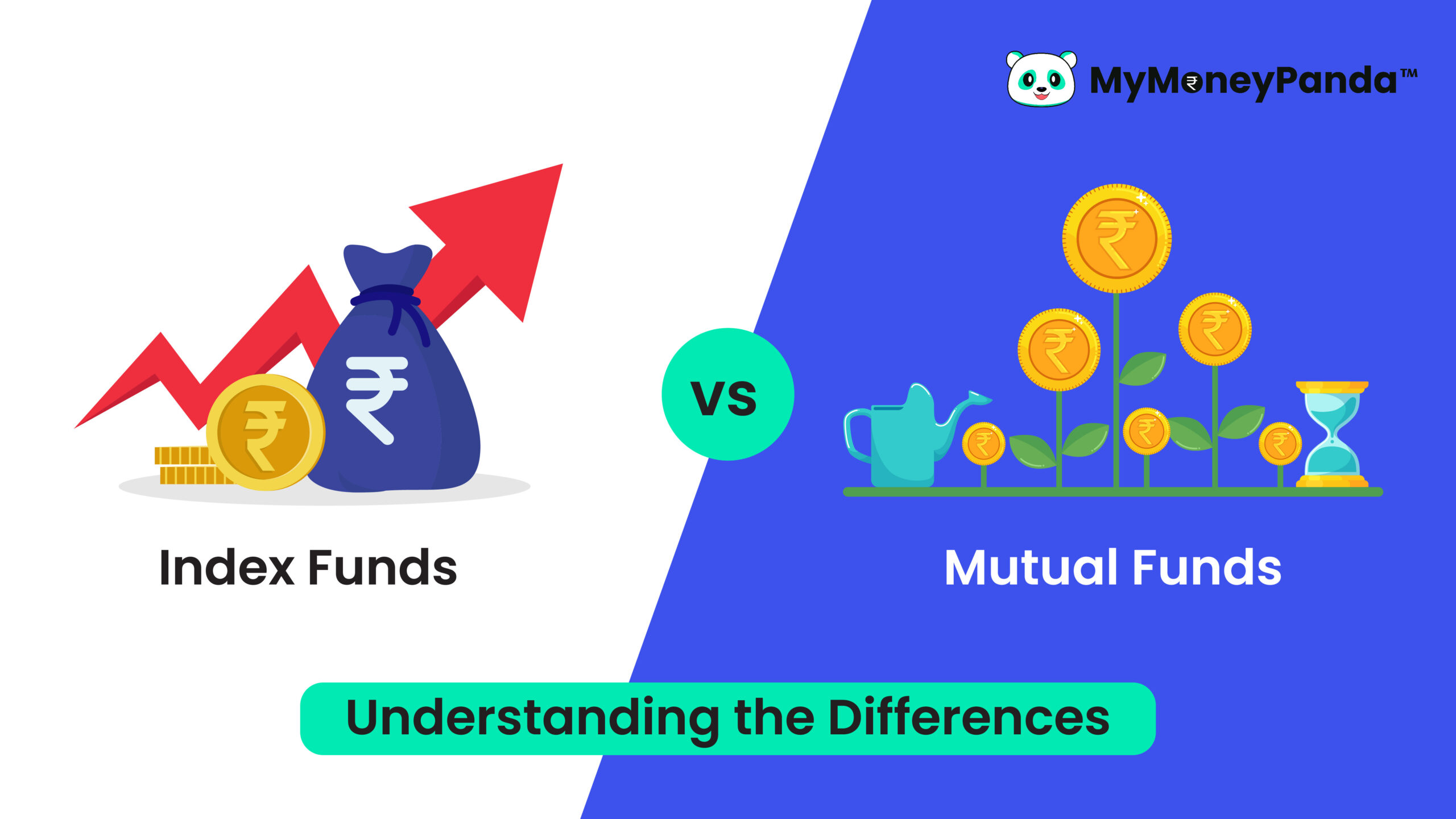
Index Funds vs. Mutual Funds: Which Investment Vehicle is Right for You?
Investing can seem daunting, especially with the myriad of investment options available. Among the most popular choices are index funds and mutual funds, each offering distinct advantages and disadvantages. Understanding these differences is crucial for making informed investment decisions that align with your financial goals and risk tolerance.
What are Mutual Funds?
A mutual fund is a type of investment vehicle that pools money from multiple investors to purchase a diversified portfolio of assets, such as stocks, bonds, or other securities. These funds are managed by professional fund managers who make investment decisions with the aim of achieving the fund’s stated objectives.
Key Characteristics of Mutual Funds:
- Active Management: Mutual funds are typically actively managed, meaning that fund managers conduct research, analyze market trends, and make investment decisions to outperform a specific benchmark or market index.
- Diversification: Mutual funds offer instant diversification by investing in a wide range of assets, which helps reduce the risk associated with investing in individual securities.
- Professional Management: Mutual funds are managed by experienced professionals who have expertise in investment analysis and portfolio management.
- Variety of Investment Objectives: Mutual funds cater to a wide range of investment objectives, such as growth, income, or a combination of both.
- Higher Expense Ratios: Actively managed mutual funds generally have higher expense ratios compared to index funds, as they incur costs associated with research, analysis, and trading activities.
What are Index Funds?
An index fund is a type of mutual fund or exchange-traded fund (ETF) that aims to replicate the performance of a specific market index, such as the S&P 500 or the Nasdaq 100. Instead of relying on active management, index funds passively track the index by holding the same securities in the same proportions as the index.
Key Characteristics of Index Funds:
- Passive Management: Index funds are passively managed, meaning that they do not involve active stock picking or market timing. The fund manager simply replicates the composition of the target index.
- Diversification: Index funds offer broad diversification by investing in all or a representative sample of the securities included in the target index.
- Lower Expense Ratios: Index funds typically have significantly lower expense ratios compared to actively managed mutual funds, as they require less research and trading activity.
- Predictable Performance: Index funds aim to mirror the performance of the underlying index, providing investors with predictable returns that closely track the market.
- Tax Efficiency: Index funds tend to be more tax-efficient than actively managed mutual funds, as they have lower turnover rates and generate fewer taxable capital gains.
Index Funds vs. Mutual Funds: Key Differences
| Feature | Index Funds | Mutual Funds |
|---|---|---|
| Management Style | Passive | Active |
| Investment Goal | Match the performance of a specific market index | Outperform a specific benchmark or market index |
| Diversification | Broad diversification across all or a representative sample of securities in the target index | Diversification across a range of assets, depending on the fund’s investment objective |
| Expense Ratios | Lower | Higher |
| Performance | Tracks the performance of the underlying index | May outperform or underperform the benchmark, depending on the fund manager’s skill and market conditions |
| Tax Efficiency | Generally more tax-efficient due to lower turnover rates and fewer capital gains distributions | Can be less tax-efficient due to higher turnover rates and more frequent capital gains distributions |
| Risk | Market risk associated with the target index | Market risk, as well as the risk of the fund manager making poor investment decisions |
| Potential Returns | Limited to the performance of the underlying index | Potential for higher returns if the fund manager outperforms the benchmark, but also the risk of lower returns if the fund manager underperforms |
| Suitability | Investors seeking broad market exposure, low costs, and predictable returns | Investors seeking potential for higher returns and willing to pay higher fees for professional management |
Advantages of Index Funds:
- Low Cost: Index funds have significantly lower expense ratios compared to actively managed mutual funds, which can save investors a substantial amount of money over the long term.
- Diversification: Index funds provide instant diversification by investing in a wide range of securities, reducing the risk associated with investing in individual stocks or bonds.
- Transparency: Index funds are transparent, as their holdings are publicly disclosed, allowing investors to see exactly where their money is invested.
- Tax Efficiency: Index funds tend to be more tax-efficient than actively managed mutual funds, as they have lower turnover rates and generate fewer taxable capital gains.
- Simplicity: Index funds are simple to understand and invest in, making them a suitable choice for beginner investors.
Disadvantages of Index Funds:
- Limited Upside Potential: Index funds are designed to match the performance of the underlying index, which means that their potential returns are limited to the index’s growth.
- No Downside Protection: Index funds do not offer any downside protection, as they will decline in value when the underlying index declines.
- Lack of Active Management: Index funds do not benefit from active management, which means that they may not be able to take advantage of market opportunities or avoid market downturns.
Advantages of Mutual Funds:
- Potential for Higher Returns: Actively managed mutual funds have the potential to outperform their benchmark index, generating higher returns for investors.
- Professional Management: Mutual funds are managed by experienced professionals who have expertise in investment analysis and portfolio management.
- Downside Protection: Actively managed mutual funds may be able to provide some downside protection by adjusting their portfolio holdings in response to market conditions.
- Variety of Investment Objectives: Mutual funds cater to a wide range of investment objectives, such as growth, income, or a combination of both.
Disadvantages of Mutual Funds:
- Higher Costs: Actively managed mutual funds have higher expense ratios compared to index funds, which can eat into investors’ returns.
- Underperformance Risk: Actively managed mutual funds may underperform their benchmark index, resulting in lower returns for investors.
- Lack of Transparency: The investment strategies and portfolio holdings of actively managed mutual funds may not be as transparent as those of index funds.
- Tax Inefficiency: Actively managed mutual funds tend to be less tax-efficient than index funds, as they have higher turnover rates and generate more taxable capital gains.
Which Investment Vehicle is Right for You?
The choice between index funds and mutual funds depends on your individual investment goals, risk tolerance, and financial situation.
- Choose Index Funds If: You are seeking broad market exposure, low costs, predictable returns, and tax efficiency. Index funds are a good choice for long-term investors who are comfortable with market risk and do not want to pay high fees for professional management.
- Choose Mutual Funds If: You are seeking the potential for higher returns and are willing to pay higher fees for professional management. Mutual funds may be a good choice for investors who are comfortable with higher risk and believe that a skilled fund manager can outperform the market.
Conclusion
Index funds and mutual funds are both popular investment vehicles that offer diversification and professional management. Index funds are passively managed, low-cost, and tax-efficient, while mutual funds are actively managed and have the potential for higher returns. The choice between the two depends on your individual investment goals, risk tolerance, and financial situation.
Before making any investment decisions, it is important to consult with a qualified financial advisor to determine which investment vehicle is best suited for your needs. They can help you assess your risk tolerance, understand your investment goals, and develop a diversified portfolio that aligns with your financial objectives.



